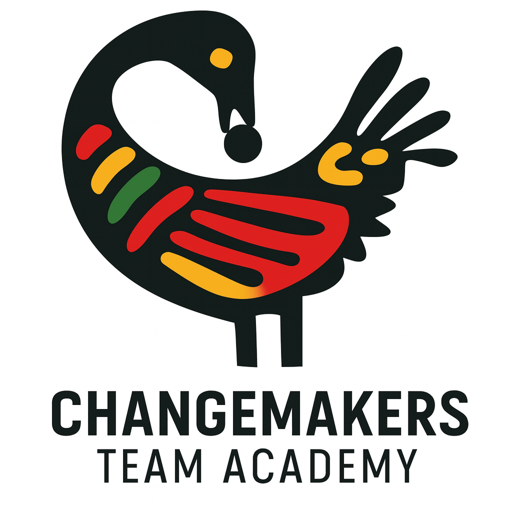
Competency Map (21 Skills) & Rubric Samples
Skills Brief — Tiimiakatemia 21 Skills, Evidence, and Alignments
A1. The 21 Skills Profile
Skills are organized into three pillars. Starred items (*) are attitudes assessed via observation and reflection alongside skill rubrics.
Team Learner (1–7)
- 1) Data Processing / IT Skills — handling information and tools (including AI) for analysis and automation.
- 2) Team Learning Skills — dialogue, peer learning, and knowledge sharing.
- 3) Personal Skills / Attitudes Toward Learning — self-development habits and growth mindset.
- 4) Creativity Skills — generating and applying novel ideas.
- 5) International Skills — intercultural awareness and collaboration.
- 6) Communication Skills — clear written, visual, and oral expression.
- 7) Initiative* — proactive experimentation and follow-through.
Team Leader (8–14)
- 8) Self-Leadership Skills — personal management, resilience, and reliability.
- 9) Project Leading Skills — planning, scoping, and delivering projects with teams.
- 10) Team Leadership Skills — building trust, motivating, and aligning diverse teams.
- 11) Planning Skills — organizing work, methods, and resources.
- 12) Team Coaching Skills — facilitating group growth and learning.
- 13) Strategic Skills — weighing alternatives, systems view, and long-range thinking.
- 14) Courage to Make Choices / Goal Orientation* — decisive goal-setting and prioritization under uncertainty.
Teampreneur (15–21)
- 15) Service / Negotiation / Selling Skills — ethical client development and relationship management.
- 16) Understanding of Financial Issues — budgeting, pricing, and basic financials.
- 17) Marketing Skills — positioning, messaging, and channel experiments.
- 18) Innovation Skills — designing, testing, and iterating new solutions.
- 19) Entrepreneur’s Modelling / Theory Skills — applying business models and learning theory to practice.
- 20) Networking Skills — building and tending professional networks.
- 21) Courage / Desire to Break Boundaries* — bold, principled action beyond comfort zones.
A2. Evidence & Typical Artifacts
We score evidence you actually produce: proposals, budgets, deliverables, CRM snapshots, facilitation plans, reading essays, reflection journals, stakeholder testimonials, and public showcase artifacts. Portfolios should include short context notes (problem → actions → results) for each item.
A3. Universal 5-Level Rubric (applies to 18 skills)
Attitudes have tailored observation rubrics in A4.
- 5 Expert — leads others; anticipates risks; scales practices.
- 4 Strong — self-directed and reliable; applies appropriate methods fluently.
- 3 Proficient — owns tasks with light prompting; follows method correctly.
- 2 Emerging — needs prompts; partial or inconsistent method use.
- 1 Basic — waits for direction; no clear method; sparse or missing artifacts.
Scoring: Each skill is scored 1–5 per sprint, latest sprint weighted 2× to reward growth. Micro-badges at ≥3 across two consecutive sprints; Advanced at ≥4 with an external endorsement.
A4. Selected Rubric Samples
Data Processing / IT Skills
5 Expert: automates, documents pipelines; 4 Strong: cleans and analyses accurately; 3 Proficient: basic analysis; 2 Emerging: irregular structure; 1 Basic: avoids tools.
Team Learning Skills
5 Expert: designs and hosts learning sessions; 4 Strong: contributes actively; 3 Proficient: participates constructively; 2 Emerging: passive; 1 Basic: disengaged.
Self-Leadership Skills
5 Expert: models reliable habits; 4 Strong: meets commitments; 3 Proficient: delivers most commitments; 2 Emerging: misses deadlines; 1 Basic: frequently unreliable.
Project Leading Skills
5 Expert: delivers complex projects; 4 Strong: delivers to scope/time/budget; 3 Proficient: meets acceptance criteria; 2 Emerging: incomplete scoping; 1 Basic: unstructured.
A5. Aggregation, Badging & Moderation
- Aggregation: 21 items scored each sprint (18 skills via rubric + 3 attitudes via observation); latest sprint weighted 2×.
- Badging: Micro-badges at ≥3 across two consecutive sprints; Advanced at ≥4 with endorsement.
- Moderation: Quarterly external sample review; calibration sessions; artifact spot checks.
Appendix B — External Framework Alignment
Crosswalks show how the 21 skills map to LinkedIn, IDG, CPA pathways, and WEF/McKinsey future skills — enabling employers and accreditors to verify readiness.